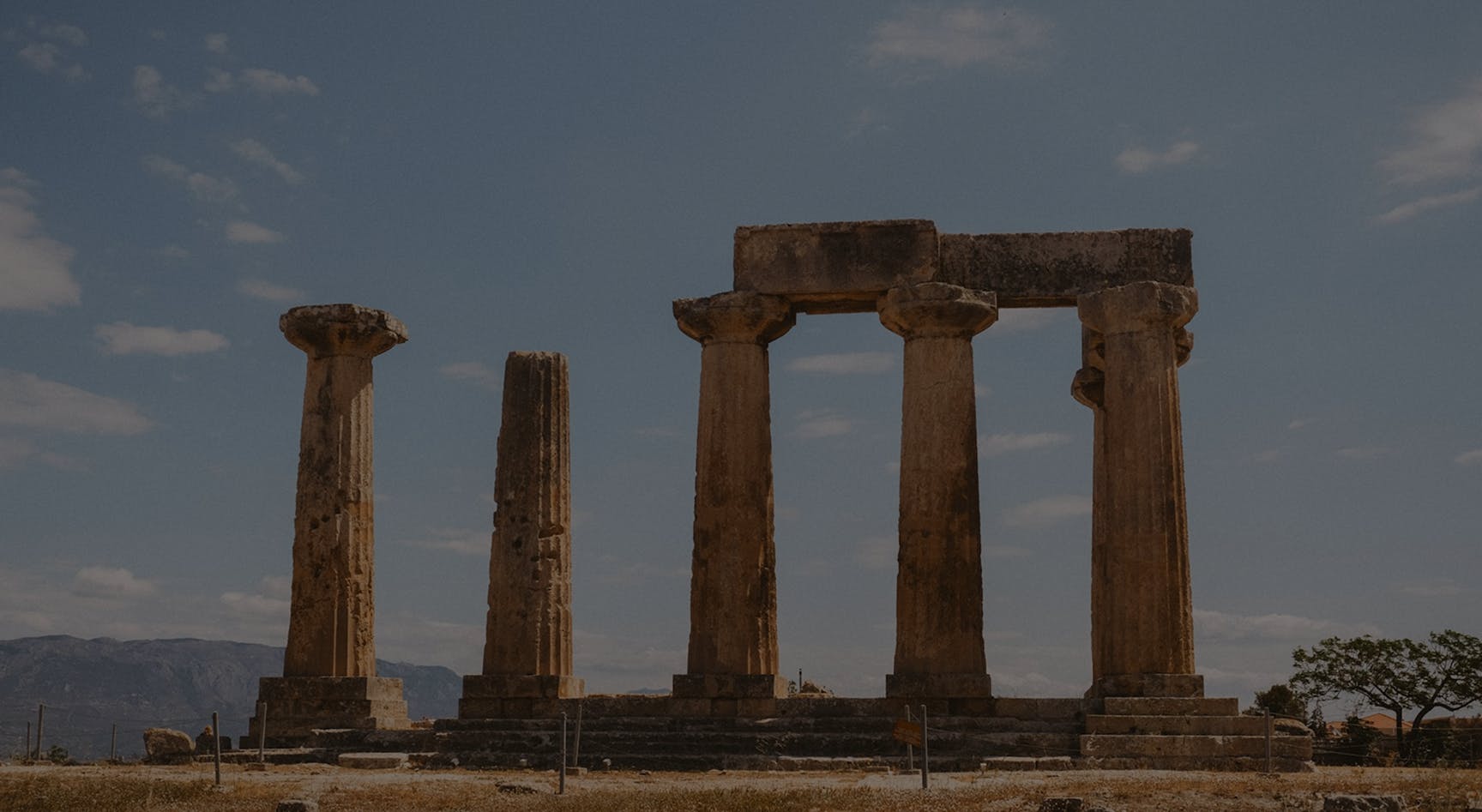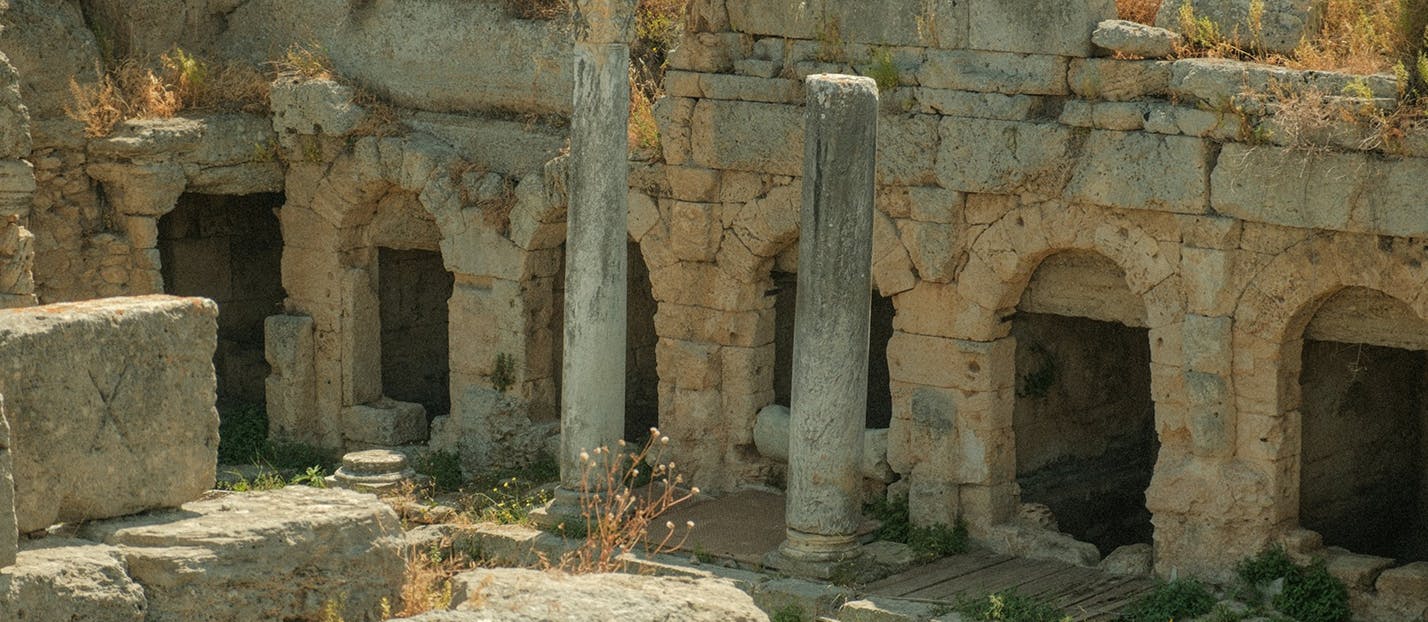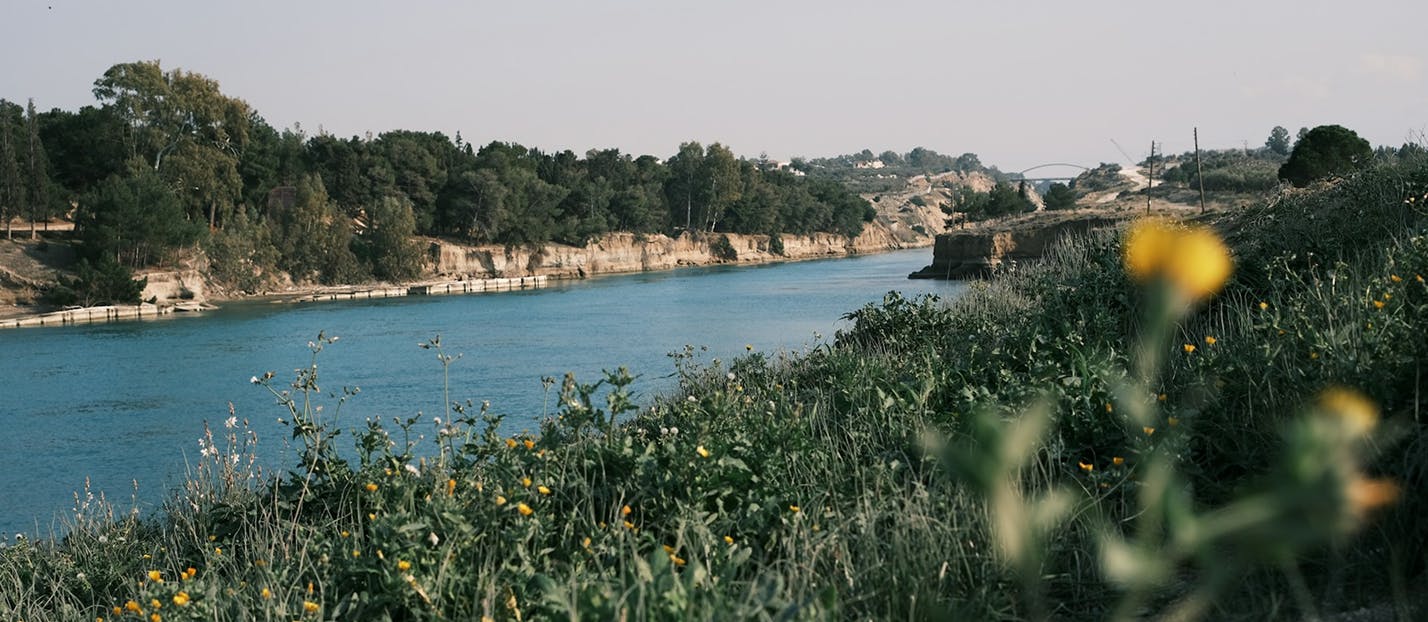
CORINTH - A JOURNEY THROUGH BIBLICAL HISTORY
For Christian Pastors, group leaders, and pilgrims, a guided tour of the City of Corinth in Greece brings to life the rich and profound truths spelled out prayerfully and systematically in Paul’s two apostolic letters to the First Century Church of Corinth. For many Evangelical Christians, a pilgrimage to Israel is a deeply transformative experience. But did you know that Greece, too, holds profound biblical significance? While the Land of Israel, Judea, and the Galilee were the setting for Jesus’ earthly ministry, Greece played a significant role in the spreading of the Gospel to the Gentile world, and Corinth was one of the key cities in Paul’s missionary labors. Situated by the beautiful coastland of Greece, the ancient city of Corinth stands as a living reminder of the biblical history that took place within her walls. The ancient metropolis served as a crossroad of cultures and commercial enterprises, and is a witness to the spread of the Christian Faith from its earliest days until today. For pastors, church groups, and Christian organizations who are looking to enrich the faith of their communities and deepen their understanding of biblical doctrines, Corinth is a must visit destination. The Apostle Paul who wrote nearly two thirds of the New Testament, was one of the most influential personalities during the eventful years of the First Century A.D. That was the generation when the Good News of God’s Messiah was carried beyond the borders of Israel to the Gentile populations of Asia, Europe, Africa and beyond. With the Apostle Paul serving as the key messenger to the Gentile world, the Good News traveled within a few decades from Jerusalem throughout Turkey and Greece, sweeping across the Roman Empire. Consequently, a faith journey to Corinth introduces Christian pilgrims to the deep passion and convictions that the early disciples of Jesus experienced 2,000 years ago. When planning your next Faith Journey to the Holy Land, consider stopping in Greece and visiting Corinth (just a short flight from Tel Aviv) for an additional inspiring experience. Here, history and Scripture come alive, offering a powerful opportunity to deepen your faith and connect with the early Apostolic missionary spirit. Sarel Tours invites you to embark on a life-changing journey through the archeological treasures and relics of this once-great city. In Corinth, you will walk in the footsteps of the Apostle Paul and uncover the spiritual legacy that propelled Corinth to the position it held.
CORINTH’S BIBLICAL PROMINENCE
Corinth is one of the most frequently mentioned cities in the New Testament. The Apostle Paul visited Corinth during his missionary journeys and established a thriving Christian community there. It was to the Corinthian Church that he addressed key theological issues in his two letters, 1 Corinthians and 2 Corinthians. To this day, these lengthy and detailed epistles remain foundational to Christian doctrine and instruction, providing unapparelled insights into the subjects of church unity, moral purity, spiritual gifts, and the power of the resurrection of the Messiah. The book of Acts tells us that Paul stayed in Corinth for an extended season of 18-months (Acts 18:1-18), during which time he preached the Gospel and worked as a tentmaker with Aquila and Priscilla. It was in Corinth that God reassured Paul in a vision, telling him, “Do not be afraid; keep on speaking, do not be silent. For I am with you …” (Acts 18:9-10). This divine encouragement strengthened Paul to continue his mission in Corinth, which established the city as a pivotal location for the spreading of the Faith and for the fast growth of early Christianity. Paul's deep connection to the Corinthian believers is evident in his letters. Having spent an extended season with them, their relationships were deep and intimate, causing him to address personal issues such as divisions in the local church, immoral practices among church members, and the orderly operation of spiritual gifts for the edification of the Body of believers. In fact, Paul’s exhortation about love that is mentioned in 1 Corinthians chapter 13 constitutes one of the deepest revelations of the love of God; the kind of love we all aspire to. This chapter is one the most quoted passages in Scripture as it encapsulates the transformational power of Christ's message to a community facing tremendous spiritual and cultural challenges.
WALKING IN PAUL’S FOOTSTEPS
A journey to Corinth is more than merely an educational tour of a vacation, rather it is a spiritual pilgrimage leading you and your group into the world of the Bible. Imagine standing at the very locations where Paul and his early disciples ministered; where he dictated his profound epistles; and where the young church encountered the challenges of introducing the Creator God of Israel to a society that has known nothing but paganism and idolatry. Visiting Corinth helps every child of God reflect on their own faith journey and gain inspiration and encouragement from the endurance, commitment, and passion of those early Christians.

THE HISTORICAL AND ARCHAEOLOGICAL MARVELS OF CORINTH
Adding to its biblical relevance, Corinth boasts an extraordinary wealth of archaeological treasures that bring the Scriptures to life. A visit to Corinth offers the opportunity to stand where Paul and the early disciples lived and served, to witness the grandeur of the city’s past, and to appreciate the spiritual and cultural atmosphere the early Christians faced. The following spots of interest are some of the highlights of your visit in Corinth:
1. The Ancient Agora and Bema
The agora, meaning the “marketplace,” was the social and economic heart of the city where most commercial activities took place. Here, local news, gossip, public debates, and open-air speeches were held. Here, Paul and his evangelistic team most likely engaged with local merchants and shoppers, spreading the message of Messiah and searching for the harvest of souls God promised them. At the center of the agora, you will find the “Bema,” a prominent platform that served as the regional “Judgement Seat” where Roman officials held trials and published official decrees. It is believed that Paul himself stood before Gallio, the proconsul of Achaia, at this very spot as recorded in the book of Acts 18:12-17, making it a must visit for Christian pilgrims. Visiting this historic Bema, the “Judgement Seat,” will help you and your group gain a powerful reminder of the full meaning and repercussions of Paul's trial. This experience, where the Good News of Messiah was brought into a direct conflict with Roman Law, reflected the courage and conviction that were required to declare the message of the One True God in the face of pagan resistance, mockery, and persecution. This location serves as a powerful reminder of the early struggles of Christianity and the resilience of Paul’s apostolic ministry.
2. The Temple of Apollo
A testament to Corinth’s Greco-Roman influence, the Temple of Apollo reflects the city's deep-rooted pagan traditions. This historical site underscores the challenges Paul and the early disciples faced in declaring the truth of monotheism to a polytheistic society. Visiting the Temple of Apollo reinforces the reality of the apostolic instruction mentioned in 1 Corinthians chapter 8 regarding food that was sacrificed to idols. Paul wrote, “Therefore concerning the eating of things offered to idols, we know that an idol is nothing in the world, and that there is no other God but one. For even if there are so-called gods … yet for us there is one God, the Father, of whom are all things … and one Lord Jesus Christ, through whom are all things, and through whom we live. However, there is not in everyone that knowledge … But beware lest somehow this liberty of yours become a stumbling block to those who are weak...” Exploring the archeological site of the Temple of Apollo, visitors gain insight into the stark contrast between the idolatrous practices of ancient Corinth and Paul’s call to holiness. The remnants of this temple stand as a visual representation of the cultural and spiritual battle Paul and the early church waged while spreading the Gospel.
3. The Temple of Aphrodite
Overlooking the city of Corinth, the Acrocorinth fortress housed the Temple of Aphrodite where temple prostitution was regularly practiced as part of the idol worship. This site serves as a strong background to Paul’s exhortations about sexual morality in 1 Corinthians 6:18-20. The early Corinthian disciples came from this idolatrous background, and exploring this site provides insight and conviction into the moral climate the early church faced, transforming hearts through the power of the Gospel. The breathtaking views from the Acrocorinth draw every visitor to appreciate both the beauty and the strategic significance of the city of Corinth. These epic views also demonstrate the stark contrast between the pagan past and the godly future that Paul envisioned for the church he was building.
4. The Erastus Inscription
Discovered near the theater, the Erastus inscription is a striking archaeological treasure that affirms the historical credibility of the New Testament. In Romans 16:23, Paul calls specific attention to a particular person when he writes, “Erastus, the treasurer of the city, greets you...” Erastus appears in the list of Paul’s faithful supporters, and this Corinthian inscription confirms the existence of such a person, offering tangible proof of biblical accuracy. Seeing this inscription will enhance the experience of your group’s visit to Corinth, as it demonstrates how archaeology aligns with the biblical account. It provides a real-life connection between Scripture and history, making Corinth a must-visit site for those who seek to strengthen their faith.

DAILY LIFE & CULTURE IN CORINTH
Understanding daily life in Corinth provides deeper insight into the context of Paul’s letters to that prominent early church community. Corinthian society was known for its luxury and immorality, which posed challenges for new Christian converts who were called into a purer and far more disciplined lifestyle. The city was also famous for its athletic games, second only to the Olympics, which were known throughout the ancient world as the Isthmian Games. These events incorporated athletes and spectators from across the entire Roman Empire, creating a bustling and lively atmosphere that stirred up local commerce, arts, and entertainment. Paul references athletic competitions in his letters, using these familiar spectacles as spiritual metaphors for the Christian life. He exhorted his disciples in Corinth, writing, “Do you not know that in a race all the runners run, but only one gets the prize? Run in such a way as to get the prize.” (1 Corinthians 9:24). The Isthmian Games give us another layer of understanding regarding Paul’s outreach and evangelistic methods. As a tentmaker by profession, working with Aquila and Priscilla, Paul most probably worked to support the influx of visitors to these games, making it possible for him to engage many people groups from all over the empire while making a living.
CORINTH’S GREATNESS
Corinth was a vital economic hub in the ancient Roman world. Due to its strategic location between the Peloponnesian Peninsula and mainland Greece, it was a key center of trade and commerce for the large and dynamic populations of the entire region. Ships would travel through the Isthmus of Corinth, the narrow land-bridge connecting the peninsula to the mainland, using the Diolkos, an ancient paved trackway, to transport tremendous amounts of goods and even entire ships. This commercial wonder facilitated Corinth’s prosperity and economic greatness, making it a cosmopolitan city with a diverse population which included Greeks, Romans, Jews, and people groups from various parts of the Mediterranean basin, Asia, and Europe. The city’s wealth is reflected in Paul’s interactions with the Corinthian church, where he had to address issues relating to greed, materialism, and social divisions (1 Corinthians 11:17-34). The economic prosperity, social diversity, and cultural paganism impacted the spiritual struggles of the Corinthian church, as believers came from different backgrounds and social classes. Understanding these dynamics deepens our appreciation for Paul’s epistles which sought to unify the church despite its internal diversity and strengthen it for the great battles they faced.
SAREL TOURS - YOUR FAITH-BASED TRAVEL PARTNER
Sarel Tours specializes in faith-based journeys to Israel and throughout the Bible-Lands of the Middle East. Our faith journeys are designed to deepen biblical knowledge and foster spiritual growth as they incorporate:
- Biblical Expertise: Guided tours led by professional and licensed tour guides who provide deep biblical and historical insights.
- Authentic Experiences: Visiting key archaeological sites and engaging in immersive activities which bring scripture to life.
- Comfort and Convenience: Travel safely and with ease with our carefully planned itineraries, comfortable accommodations, great cuisines, and the services of experienced drivers and licensed guides.
- Faith-Building Fellowship: Traveling with like-minded Christians, your group members will develop deep connections, enjoy genuine fellowship, and engage in prayer and worship as you travel along your carefully designed Sar-El Tours’ itinerary.